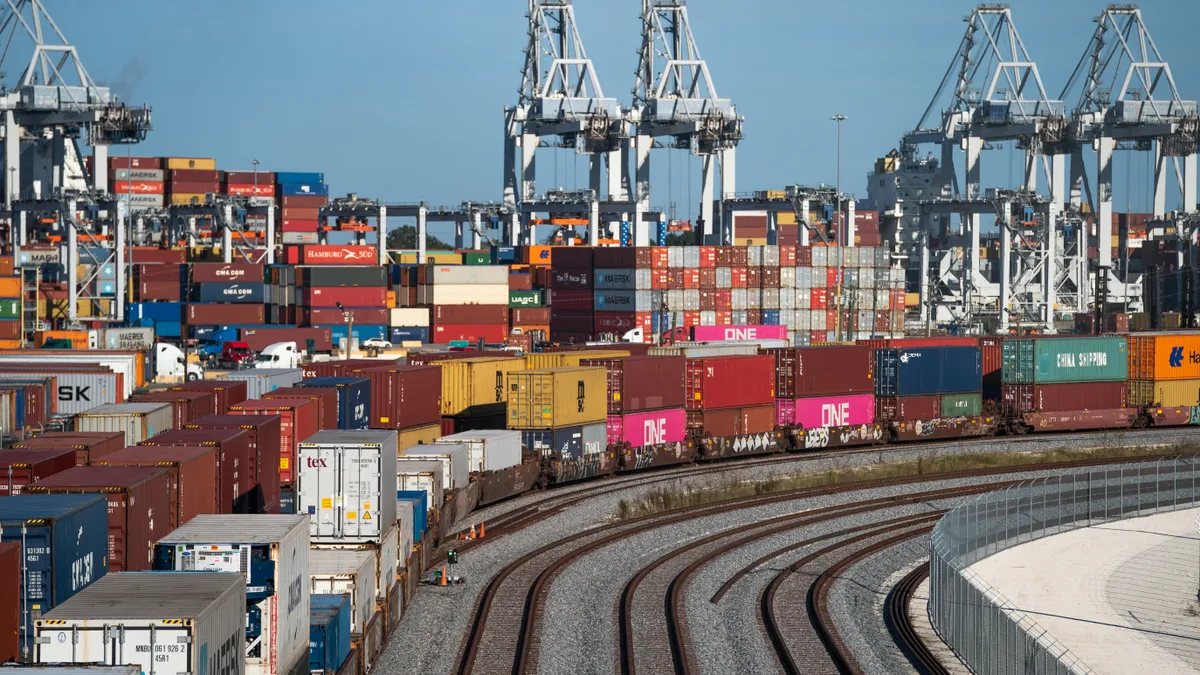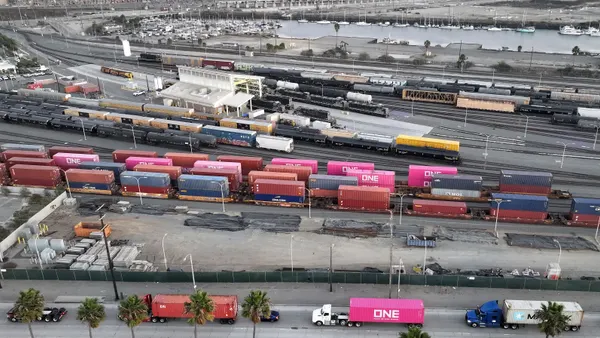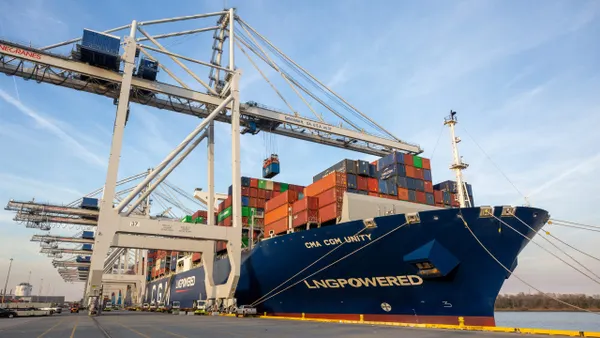As the Federal Maritime Commission weighs demurrage and detention reform, port executives from across the country expressed concerns that new regulations could lead to capacity issues at facilities.
Shippers sounded the alarm on skyrocketing demurrage costs during the pandemic, and some cargo owners said they were being hit with fees even when they couldn’t pick up containers due to overwhelming congestion. Average detention and demurrage charges increased 38% for standard-sized containers between 2020 and 2021, rising from $586 to $868, according to a Container xChange report.
The FMC is expected to enforce new rulemaking around detention and demurrage costs as part of the Ocean Shipping Reform Act enacted last year. In Oct. 2022, the agency proposed that carriers issue bills only to parties with which they have contractual relationships.
Executives representing major ports from around the country were asked if they had any concerns about upcoming detention and demurrage regulation at the TPM23 Conference by S&P Global Market Intelligence in Long Beach, California. The majority expressed worries that potential regulation could impact cargo fluidity at ports, and urged lawmakers to tread carefully.
Here’s a look at what port leaders had to say on the topic. Some answers have been edited for length and clarity.

Griff Lynch
Executive Director at Georgia Ports Authority
I think that we have to [be] really, really, really careful that we don't take a system that worked for many years ... blow it up and start all over again.
I think clearly the pendulum has swung too far towards the carriers and it's arguable that there were some abuses there ... [But] I don't think the shippers want to swing the other way because, at the end of the day, they want their cargo as quickly as it can. If you remove the ability to have some type of charges in place to keep the cargo moving, we will be in worse a worse situation than we were ever before.
And so, yes, I think that we have to be really careful looking at this. And we need to understand these levers ...Let's take our time, let’s slow it down a little bit. The market will self correct.

Stephen Edwards
Chief Executive Officer at the Port of Virginia
Dwell times that we had on terminals back in the height of the pandemic [are] now right back to normal. So that shows the demurrage encourages people to move the freight.
I don't think any of us — shipper, importer, exporter, anybody — wishes to see any system gets clogged up. So we just have to make sure the characteristics are balanced.

Beth Rooney
Port Director at Port Authority of New York and New Jersey
What I'm concerned about [is that] we don't have the room to continue to grow and grow and grow. So we've got to be able to use the land that we have efficiently.
[There could also be] unintended consequences, particularly because the terminal operators and the ocean carriers have to be able to prove their right to charge demurrage or detention. It's very difficult for them to do that when they're not in control of all of the movements in the supply chain. So what I'm concerned about is that our capacity in the port will be constrained.

John Wolfe
Chief Executive Officer at the Northwest Seaport Alliance
I think it's a complex issue and I think that there needs to be better communication among the different parties. [But] there's another issue at hand that's related to this but a little bit different and that has to do with long dwell fee.
And one of the areas that we're exploring within our gateway is that ... we work through the ocean carrier where there is the contract. And then the ocean carrier can work with the cargo owner because that's where their contractual relationship resides. And I think that may improve things because there's a disconnect between the ocean carriers, BCOs and what the terminal can see. So that's an area that we're exploring within our gate.

Roger Guenther
Executive Director at Port Houston
As a port and terminal operator, we continue to engage with the regulators and the legislators to make sure that they understand what's important. I believe demurrage is important to keep the fluidity and keep cargo moving. And I do believe that Congress was very intentional about not having the marine terminal operators in the middle of carrier and shipper contracts. We don't need that extra step, I think.
We worked through two years of tremendous, unprecedented times, and I think there's some commercial solutions [that] can be effective as we work these things out. So I think there are some unintended consequences, but I don't think [marine terminal operators] need to play some central role in those invoices.














